Gain the knowledge and skills to protect and improve the health of millions of people with this one-year degree. Connect with leading thinkers across disciplines, and to the employers and agencies working to improve health and well-being and reduce inequalities. Take advantage of a guaranteed work placement to gain valuable experience and professional connections.

Fast-track your career with this one-year degree.
Master of
Public Health
Get up to 75% off your fees in 2025
UOW is guaranteeing Commonwealth Supported places for eligible domestic students studying postgraduate health courses in 2025. This means the Australian Government will pay up to 75% of course fees. There’s never been a better time to get started on your next qualification.
ELIGIBILITY & FEES Apply now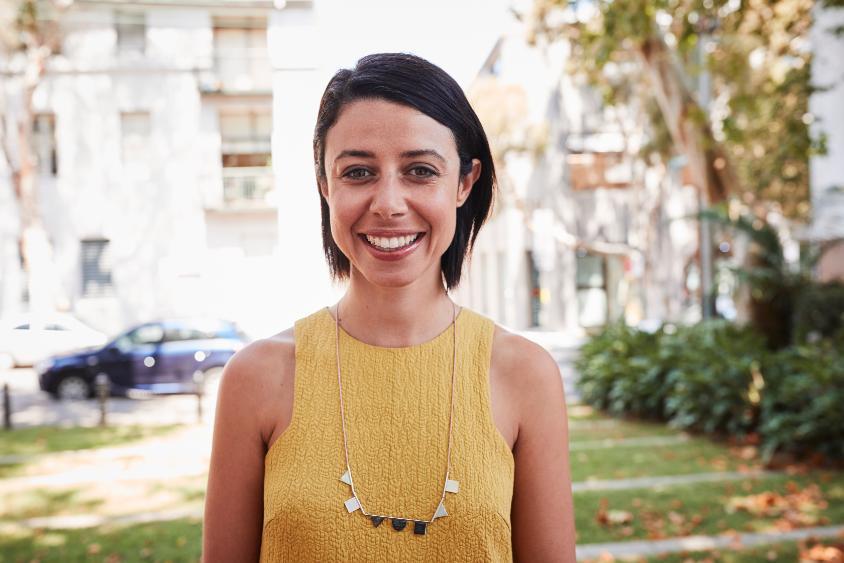
I am now working in a permanent role as a Programs Coordinator in the Skin Cancer Prevention Unit at Cancer Council NSW. My experience interning with Cancer Council NSW during my placement gave me a leg up in the application process as I had relevant experience and internal references - I am very grateful to UOW for this!
Key facts
Master of Public Health
The Master of Public Health is a fast-track degree for those who have an undergraduate degree, as well as Honours, Graduate Certificate or Graduate Diploma (one qualification must be in a related field), or significant professional or volunteer experience in a field relevant to public health.
Applicants who do not meet the above requirements should enrol in the Graduate Certificate in Public Health as a pathway into the Master of Public Health.
Graduate Certificate in Public Health
Admission to the Graduate Certificate in Public Health requires a bachelor's degree from any discipline. Applicants with other relevant professional qualifications (e.g. Registered Nurses) and at least two years' relevant work experience may also be considered.
Please check Course Finder for detailed information
Master of Public Health Extension
Admission to the Master of Public Health Extension requires a bachelor's degree from any discipline.
Master of Public Health
The Master of Public Health can be studied over one-year full-time, depending on the subjects chosen. You can also choose to study part-time and work at your own pace. Students who are working full-time often study part-time, choosing to complete one to two subjects per semester, taking two years to complete the full degree.
Graduate Certificate in Public Health
The Graduate Certificate in Public Health is a 6-month course, and is designed for students who need a solid foundation in Public Health concepts before continuing into the Master of Public Health. You can also choose to study part-time and work at your own pace. Students who are working full-time often study part-time, choosing to complete one to two subjects per semester, taking one year to complete the full degree.
Master of Public Health Extension
The Master of Public Health Extension is 2-years full-time, or you can choose to study part-time at your own pace.
Master of Public Health
The Master of Public Health requires the successful completion of 48 credit points:
- Four core public health subjects, plus
- Subjects from a selected specialisations, OR
- Any three subjects selected from the specialisations, plus the Capstone subject.
Core subjects include:
- Foundations in Public Health
- Epidemiology and Biostatistics in Public Health
- Public Health Methods
- Health Economics, Policy and Promotion
Find out more about the specialisations on offer.
View the Course Handbook for the complete course structure and learning outcomes.
Graduate Certificate in Public Health
The Graduate Certificate in Public Health requires the successful completion of two core subjects, plus two elective subjects of your choice over 6-month full time, or part-time equivalent.
View the Course Handbook for the complete course structure and learning outcomes.
Master of Public Health Extension
The Master of Public Health Extension requires the successful completion of at least 96 credit points:
- Four core public health subjects (24 credit points), plus
- One or two specialisations, plus elective subjects (72 credit points), OR
- Any subjects selected from the specialisations, plus the Capstone subject (72 credit points)
View the Course Handbook for the complete course structure and learning outcomes.
| Session | Session Details |
|---|---|
| 2025 Autumn |
Commences: 3 March 2025 |
| 2025 Spring |
Commences: 28 July 2025 |
Master of Public Health
| Campus | Total Course Fee* |
|---|---|
| Wollongong, UOW Online |
$8,140-$9,313 (2025) |
Graduate Certificate in Public Health
| Campus | Total Course Fee* |
|---|---|
| Wollongong, UOW Online | $3,484-$4,656 (2025) Depending on subject selection |
Master of Public Health Extension
| Campus | Total Course Fee* |
|---|---|
| Wollongong, UOW Online | $16,866-18,625 (2025) Depending on subject selection |
The above tuition fees are the amount payable for a Commonwealth Supported place.
Commonwealth Supported Places (CSPs) are University places where, for eligible domestic students, tuition fees are made up of two parts:
- an Australian Government contribution (for some courses, up to three-quarters of the tuition fee is funded by the Australian Government)
- a student contribution (listed above, which may be deferred and repaid later via a HECS-HELP loan)
To be eligible for this fee subsidy, you must meet the following criteria: Be a domestic student, i.e. an Australian or New Zealand citizen, a permanent resident of Australia or a permanent Australian Humanitarian visa holder.
*Total indicative course tuition fees shown is for a Commonwealth Supported place. These fees are based on normal course length and progression and are subject to change from year to year. For up to date information on course structure and fees, refer to the UOW Course Handbook.
UOW Online
- Graduate Certificate of Public Health
- Master of Public Health
UOW integrates online learning into nearly all subjects. However, when your course is offered through UOW Online, 100% of your course will be delivered online, including all tutorials, class discussions and submission of assessments. This delivery mode allows you to study from anywhere in the world with an internet connection.
Studying online still means you will be able to connect with our passionate lecturers and teachers and network with your classmates.
Wollongong campus
- Master of Public Health
When you study ‘on campus’ you will attend classes on the Wollongong campus between Monday and Friday, and you can sometimes choose class times outside business hours to help you organise study around your other commitments. UOW integrates online learning into all of our subjects so the time spent on campus is spent strengthening your understanding and practising your skills.
Public Health provides the opportunity to make improvements in many people's health and potentially reach people before they require clinical services. The course was flexible which meant that I could balance my study around full-time work and personal responsibilities. The skills and knowledge I gained gave me greater confidence in my work.
What next?

Fill out your details and we will reach out to provide more information.

Book a time to speak to a postgraduate specialist over the phone.

Applying to study at UOW is quick, easy and secure.
Fast-track your public health career
- Cutting-edge course content
- Guaranteed industry placement
- Applied practical focus
- Deep connections across the sector
UOW’s Master of Public Health has gone through an extensive review and rebuild to develop a course which reflects the future of public health. This course engages students in an innovative learning experience that provides strong work-ready skills and a keen analytic social lens to address issues of global public health significance.
The course has been designed with industry and our academic staff who work closely with public health focused organisations.
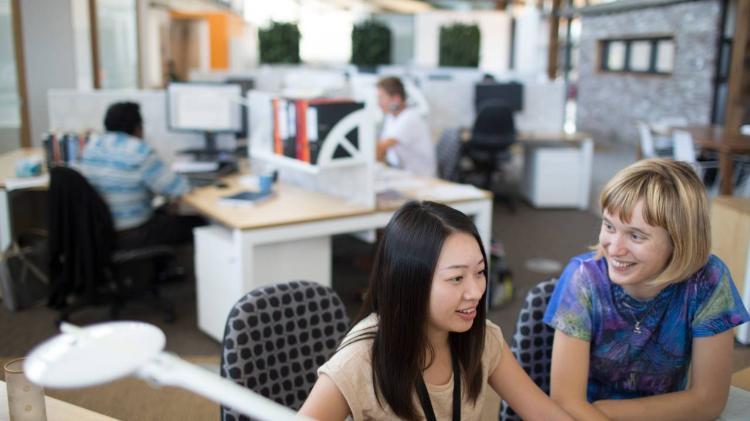
For students who select the Public Health Practice subject, academics in the School of Social Sciences will help you to source a placement opportunity accessible to your location (within Australia). Our strong network of contacts in the Public Health sector mean that we have the confidence to be able to guarantee this to any students who wish to complete this specialisation.
The Public Health Practice specialisation allows students to complete two practical placements of at least 240 hours. Apply public health values, knowledge and skills in workplace settings, apply critical thinking, and demonstrate leadership and advocacy to promote equitable public health practices.
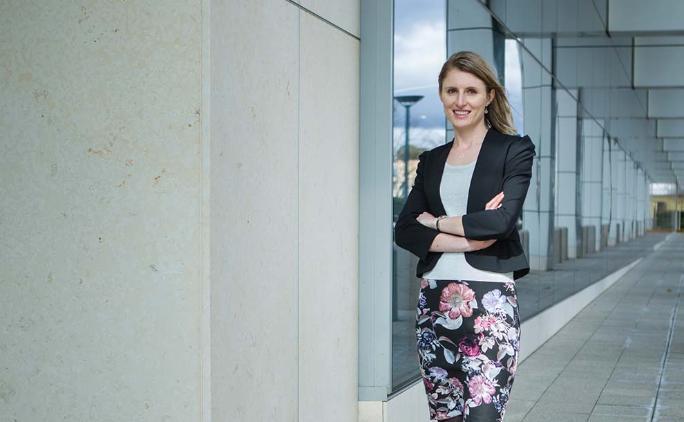
Take a deep dive into local and global challenges
The Master of Public Health has an applied practical focus, making extensive use of problem-based learning and case studies to develop your skills in analysis, exploration, and integration of information to solve some of the big global and locally significant public health issues. The origins of many public health problems can be found in understanding the social determinants of health and well-being, issues of social justice and equity. You will be challenged by contemporary case studies and required to pitch solutions to real-world problems to industry partners.
Gain valuable experience
Choose to undertake a work placement, facilitated by our Public Health team, leveraging the deep connections with people and organisations in the sector.
UOW maintains strong links with local, national and international bodies to ensure programs are relevant to the latest developments and to offer work placement opportunities to our students.
Our courses are taught by professionals who are world-leading experts and experienced practitioners so the skills and knowledge you acquire can be applied to real-world challenges today and in the future.
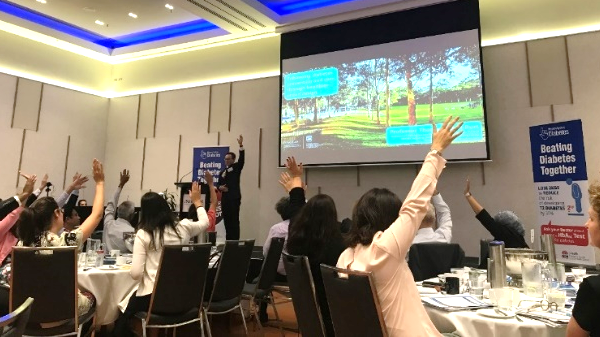
Specialisations
These courses are flexible. Students can select a specialisation and complete the prescribed subjects, or choose not to select a prescribed specialisation, and select from a range of subjects based on their interests.
- Climate and Environment
- Big Data and Decision Science
- Indigenous Health
- Public Health Practice (Industry placement)
- Public Health Research
- Social Systems
Learn how climate change and associated disasters impact the health of vulnerable societies and population groups around the world. Apply a public health perspective to these issues, gaining a deep understanding of the links between climate, environment, and health impacts on the global community.
In addition to core subjects, students will study:
- Disaster Resilience, Policy and Practice in Diverse Societies
- Public Health and Sustainable Development
- Climate Change Vulnerabilities and Risk
Gain strong quantitative and epidemiological skills, and learn to apply public health values to contextualise data science, conduct reproducible data analysis practices, and effectively communicate public health issues with data visualisations.
In addition to core subjects, students will choose three subjects from the following:
- Managing and communicating health and social data
- Data science and machine learning for health and social sciences
- Observational epidemiology and understanding causes
- Health Economics from Theory to Practice
Plus, the Public Health capstone subject.
The Indigenous Health specialisation applies a cultural lens to public health and focuses on the needs of Aboriginal and Torres Strait Islander peoples, as well as Indigenous evaluation and research methodologies. This specialisation will be attractive to a range of professional health and social settings, in governmental and non-governmental organisations.
In addition to core subjects, students will study:
- Indigenous research methodologies
- Indigenous evaluation and quality improvement
- Social determinants of Indigenous health
- Public health capstone subject
The Public Health Practice specialisation allows students to complete a practical placement of at least 240 hours. Academics in the School of Social Science will leverage their extensive industry partner base to help you secure a placement accessible to your location. Apply public health values, knowledge and skills in workplace settings, apply critical thinking, and demonstrate leadership and advocacy to promote equitable public health practices.
In addition to core subjects, students will undertake:
- Public health practice
- Two subjects from across the other specialisations
The Public Health Research Specialisation involves a single 24-credit point subject in which you will design and conduct a public health research project with the support of an academic supervisor. This specialisation may provide students with a potential pathway into a PhD program. Students will complete the core subjects, plus a major research subject.
Enrolment in the Research specialisation requires the approval of the Academic Program Director.
Take a deep dive into the nexus of where public health intersects with societal factors, such as in schools, with social policy, justice and welfare systems. This would be of interest to health and welfare professionals, and suit work in a diverse range governmental and non-governmental organisations.
In addition to core subjects, students will study:
- Where social systems meet public health
- Public health and justice
- Critical and contemporary perspectives on public health in education
- Public health capstone subject
I really enjoyed my degree, the staff at UOW were all really supportive. Most of them do their own research in the public health field so they all have different areas they are passionate about. I found it extremely valuable, I learnt a lot of skills which I was able to apply in my work.
Support for postgraduate students

If you have questions before you apply, please complete the enquiry form or book a personalised consultation with a course coordinator.

In 2025 most of UOW's postgraduate coursework degrees offer Commonwealth supported places (CSP) to eligible Domestic students. This will mean up to 75% off course fees.

Our Careers service can help you gain professional experience, provide advice on resumes and applications, and help you find you new roles using your new qualification.

We understands that postgrad students need support from time to time. UOW offers online support via our Learning Co-op, Library and Academic language and learning.
Backed by research

High-quality research about what matters to people in public health and healthcare.
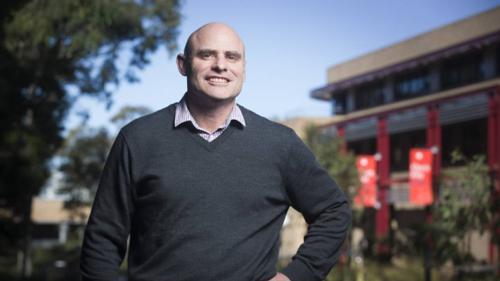
Wellness, early intervention, and population-level approaches to healthy eating and movement behaviours in children.

Improving the physical and mental health of people in our community.
We're here to help
Fill out your details and we will provide detailed course and fee eligibility information. You will also have the opportunity to ask questions about our courses, fees, dates or the application process.
Thank you for your submission. One of our Specialists will be in touch shortly.